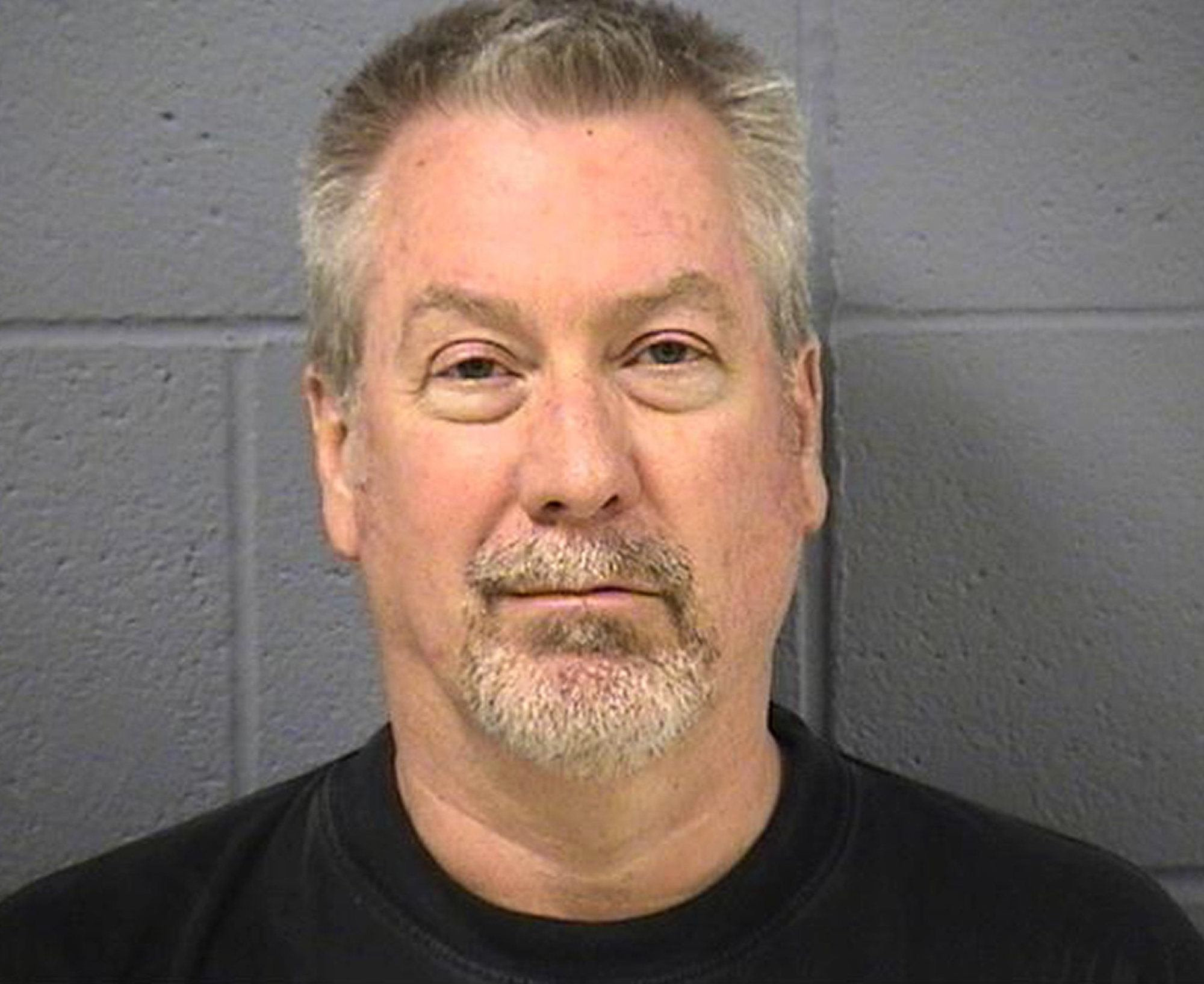 This May 7, 2009 file photo provided by the Will County, Ill., Sheriff's office shows former Bolingbrook, Ill., police officer Drew Peterson. Peterson is charged with first-degree murder in the 2004 drowning death of his former wife Kathleen Savio. He has pleaded not guilty. (AP Photo/Will County Sheriff's Office, File)
This May 7, 2009 file photo provided by the Will County, Ill., Sheriff's office shows former Bolingbrook, Ill., police officer Drew Peterson. Peterson is charged with first-degree murder in the 2004 drowning death of his former wife Kathleen Savio. He has pleaded not guilty. (AP Photo/Will County Sheriff's Office, File)MICHAEL TARM
JOLIET, Ill. (AP) - Attorneys deliver closing arguments at Drew Peterson's trial Tuesday, after which jurors will begin deliberations on whether the state proved the former Illinois police officer murdered his third wife.
The sides make their final pitches after five weeks of testimony about the 2004 death of Kathleen Savio, whose body was found in a dry bathtub of her suburban home outside Chicago with a gash on the back of her head.
The 40-year-old's death was initially ruled to have been an accident. Only after Peterson's fourth wife, 23-year-old Stacy Peterson, went missing in 2007 was Savio's body exhumed and her death reclassified as a homicide.
Prosecutors will argue circumstantial evidence points to just one plausible explanation for Savio's death: that Peterson killed her. The defense will say not only is there no evidence tying Peterson to Savio's death, the state hasn't even proven that her death was murder.
Chris Koch delivers the state's closing, and Will County State's Attorney James Glasgow will do the rebuttal - essentially the last word to jurors. The normally stone-faced Glasgow has shown flashes of anger at the trial, arguably the biggest of his career.
Closing for the defense is Joe Lopez, known for his brightly colored ties and aggressive, blunt courtroom style.
Peterson, 58, has pleaded not guilty to first-degree murder. If convicted, he faces a maximum 60-year prison sentence.
Prosecutors have been barred from telling jurors Stacy Peterson is presumed dead or that her husband is the lone suspect in her disappearance during testimony - and they can't allude to it during closings.
Among the challenges for the prosecution will be to spell out clearly how jurors can convict Drew Peterson absent any physical evidence and with not a single witness placing him at the scene of the alleged crime.
The heart of the state's case is normally barred hearsay - statements Savio made to others before she died and that Stacy Peterson made before she vanished. Illinois passed a law in 2008, dubbed "Drew's Law," allowing hearsay at trials in rare circumstances.
The hearsay in the prosecution's four-week presentation of 30-plus witnesses included friends and relatives of Savio who testified that Savio told them Peterson could kill her and make it look like an accident.
Prosecutors on Tuesday are also likely to remind jurors of testimony from Stacy Peterson's pastor, Neil Schori, who said she told him her husband got up from bed and left the house in the middle of the night around the time of Savio's death.
As part of their three-day case, Peterson's lawyers called Peterson's and Savio's 19-year-old son, Thomas Peterson, to tell jurors he has never believed his father killed his mom.
